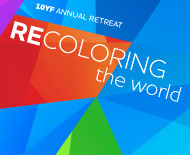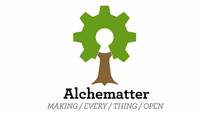Future Now
The IFTF Blog
From #10YF2014: A Wikipedia for Making
 IFTF’s 2014 Ten-Year Forecast explores the landscape of change over the coming decade by contemplating ten projects that, if successfully undertaken today, could change the paradigm in their fields in the next ten years. One of those projects would transform the way we use materials and tools to make things, and link people, skills, and knowledge together in ways we've never seen before. Think of it as a Wikipedia for Making.
IFTF’s 2014 Ten-Year Forecast explores the landscape of change over the coming decade by contemplating ten projects that, if successfully undertaken today, could change the paradigm in their fields in the next ten years. One of those projects would transform the way we use materials and tools to make things, and link people, skills, and knowledge together in ways we've never seen before. Think of it as a Wikipedia for Making.
We start with a new classification scheme for making things. The scheme abstracts making into its core elements—materials, tools, and techniques—to create a kind of elementary grammar for making. Then, just like Wikipedia’s standardized structure, we build a platform that encourages people to describe their recipes for making using the basic grammar we’ve laid out. New ways to collaborate, share, and create would reshape making and manufacturing—and the ways we solve basic humans problems of food, shelter, fuel, and communication.
There are a number of forces that suggest how we might get from here to there:
- Global growth of online learning communities like Instructables and WikiHow
- Rapid spread of DIY and maker culture
- Ongoing evolution of sense-making and pattern-matching applications through semantic and graph network analysis
- Growth of new tools for large-scale collective collaboration, new models for organizing distributed work on very large, complex projects.
One of our favorite models for large-scale collaboration is GitHub, the open source social programming platform that’s in hyper growth mode today. GitHub allows programmers to easily duplicate even the most unwieldy code, customize it, and push those customizations back to the community in a way that lets people easily see changes and how they might be useful to them. It’s a way to engage diverse, distributed contributors and let them find the places where they can make a difference—and a fast way for the crowd to innovate.
Started in 2008 as a system for tracking version control across millions of lines of code, GitHub has fundamentally changed the way people interact with code. Now it has become a powerful new model for doing distributed collaboration on all types of projects—from legal documents, political campaign platforms, even taco recipes.
 The Wikipedia for Making project was inspired by a real-life practical visionary with a project that is underway today, who we invited to join us at the 2014 Ten-Year Forecast Annual Retreat. Dominic Muren has been working on Alchematter for the past three years. It's an experimental platform that starts to organize manufacturing and making knowledge into tools, materials, people, and processes. Dominic believes that makers can drive solutions to all kinds of pressing problems—but they must be better connected and able to translate their knowledge across domains. Alchematter is building a platform for modular, sequential procedures that will jumpstart the creation of a universal language for making.
The Wikipedia for Making project was inspired by a real-life practical visionary with a project that is underway today, who we invited to join us at the 2014 Ten-Year Forecast Annual Retreat. Dominic Muren has been working on Alchematter for the past three years. It's an experimental platform that starts to organize manufacturing and making knowledge into tools, materials, people, and processes. Dominic believes that makers can drive solutions to all kinds of pressing problems—but they must be better connected and able to translate their knowledge across domains. Alchematter is building a platform for modular, sequential procedures that will jumpstart the creation of a universal language for making.
If this kind of platform were widely adopted, ten years from now we might see the birth of a human-centric supply chain that starts with people: their needs, their knowledge, and their imagination. It would drive new expectations of transparency about materials sourcing and production processes, leading traditional manufacturing organizations to reorganize around convening skilled people and creating processes for them to work together. We'll also grapple with the limits of openness, and the ethics of creating things that may cause harm.
A Wikipedia for Making might give us a combinatorial explosion of ideas for making that reflects our distributed human ingenuity and helps us come up with new answers for problems by processing things differently, better using the tools that we have at hand, or using materials more intelligently.
This post is from our 2014 Ten-Year Forecast, which explores 10 bold projects that have the potential to change the world over the next 10 years. In the coming weeks, look for more about the projects and the futures they would make.
Curious about the Ten-Year Forecast Program?
- Follow the projects at @iftf, #10YF2014, and #10projects10years
- Take a sneak peek at our plans for 2015
- Find out more about the Ten-Year Forecast program
- Check out previous years' Ten-Year Forecast research
- Contact Sean Ness (sness@iftf.org)



